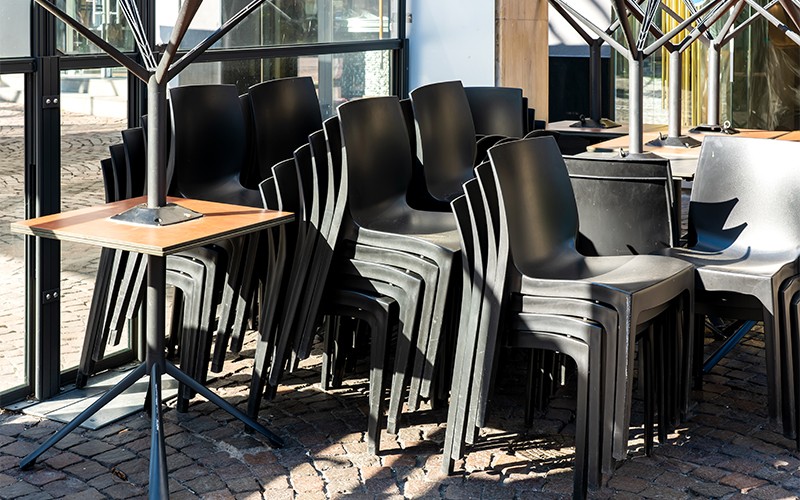
24 Sep Considerations When Liquidating Office Furniture
When commercial offices relocate, what are the options for disposing of furniture that won’t be incorporated into the new space?
One option that commercial operations pursue is liquidation. Under the right circumstances, liquidation can be an effective way to find a new home and bring a cash return to the business.
However, many factors impact the success of liquidation.

- Business owners may be surprised to learn that their office furniture is worth less than they expect. The value of office furniture depreciates over time, and the life expectancy for most office furniture is 7 years, as defined by the IRS. For example, a desk purchased for $1000 (retail) will depreciate $143 each year. If that desk is 5 years old at the time of liquidation, the retail value would be less than $285. However, that does not mean that the business will be able to sell the desk for $285. The liquidator needs to account for the cost to disassemble, transport, warehouse, and sell the desk. The actual price the liquidator offers for the desk may be as low as 5% of the current retail value or in this example $14.
- In order to stay in business, liquidators need to be able to sell the furniture they purchase. Brand name of the furniture factors into the re-sell value. Furniture that is damaged or has cosmetic flaws (stains, chips, scratches) is less desirable to buyers. Additionally, the preferred look and style of furniture change rapidly. More people are choosing table desks rather than large executive desk/hutch units. As commercial offices rely more on digital formats, the need for file cabinets and other paper storage solutions continues to decrease. If furniture needs to take up space in a warehouse for months or longer until the right buyer comes along, the liquidator must factor that storage and carrying cost into its offer. In some cases, liquidators will opt not to purchase difficult-to-sell pieces from commercial offices.
- The current market for used office furniture dictates value. At the start of the pandemic, desks and task chairs were in high demand! Employees working from home needed workstations, and parents set up virtual classrooms for their children. Today, more than a year and a half into the pandemic, those who needed home office or virtual classroom furniture have already bought what they needed. Additionally, as workers transition back to the office and children return to the classroom, online marketplaces are full of ads from people looking to sell the furniture they no longer need. Similarly, commercial offices are downsizing their footprint, flooding the market with unwanted office furniture.

- Liquidation processes can include unexpected costs, depending on the service model used by the individual company. Some may charge a steep removal and disposal fee to clear out furniture that they do not purchase from the business. Others will only remove furniture that they have actually sold, leaving the commercial office to contract and pay for a mover to move out the unwanted office furniture. In some cases, the purchase price offered to the business is actually a credit that can only be used to purchase new furniture through the liquidator. Be sure you read any agreements before committing.
- Some commercial offices have attempted to sell their unwanted office furniture through the online marketplace. These businesses face a similar set of issues as liquidators and additionally must make time for potential buyers who want to view the pieces in person, haggle over prices, and only buy small quantities or individual pieces. In these direct sales, commercial offices must also coordinate and pay for delivery arrangements to get the office furniture pieces to the buyer. In the long run, the time that staff spend on the selling process may result in a net negative payout for the sale.
Crabtree Family Moving & Storage can help!
We share the same goal as our commercial office clients! We are committed to finding ways to put used office furniture to good use and not into the landfill.
As part of this effort, Crabtree Family Moving & Storage has partnered with Triangle area nonprofit organizations to build a list of their office furniture needs. When we are contracted to remove furniture from a commercial office, we look for opportunities to transfer as much furniture as we can to our partner nonprofit organizations for their spaces. Our commercial office clients can feel good knowing that the re-use of their furniture is aiding an organization and that the sustainability goals of the business are being met.
A significant amount of time and labor is involved in both the disassembly of office furniture for transport and in the actual delivery to the partner nonprofit organization. We make every effort to keep the cost of removing unwanted office furniture as low as possible for our commercial clients.

